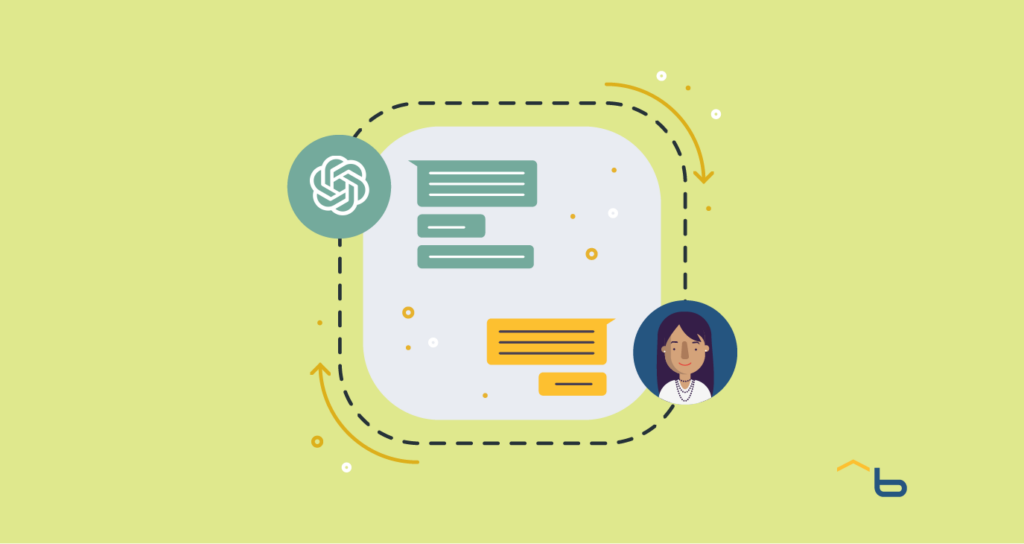![]()
Ready To Start Hiring?
Successful hiring starts with a simple step
There are numerous ways in which Human resources (HR) departments are examining the possibilities of artificial intelligence as it continues to revolutionize numerous sectors. ChatGPT, an AI-powered technology gaining popularity, is a language model that can engage in conversational conversations.
While ChatGPT has several advantages, it is essential to recognise its possible downsides regarding HR activities. In this article, we’ll look at five ways ChatGPT might hurt HR procedures and three ways it can help. Let’s get started!
Following are the ways through which ChatGPT hurts HR:
However, here are three ways it can also help:
During its trial, it was noticed that ChatGPT had a distinct lack of empathy when reacting to delicate circumstances.
An obvious example appeared when requested to write a termination letter for an employee with performance concerns. The bot not only drew depressing comparisons to coworkers, but it also used an overly harsh tone.
While it’s critical to be tough and straightforward in situations like these, it’s also critical to recognize the human side underlying the performance issues. When the “manager” lacks compassion, the bot struggles to understand the possible effect of its statements.
To communicate successfully in a professional situation, offering particular data is critical, especially when setting performance objectives or dealing with performance and financial difficulties that might lead to termination is critical. ChatGPT, however, falls short in this regard.
Whether it’s terminating an employee or correcting a negative work culture, artificial intelligence fails to give specific examples or standards to assist people understand the notion of hard effort or poor performance. Obviously, such information would come from personally knowing the employees or the work culture or having data regarding the situation. This lack of detail impedes employee comprehension and HR operations.
Certain subjects need compassion, whether to protect personal privacy or corporate interests. Human resource experts recognize the significance of avoiding overtly exposing personal employee information or trade secrets.
However, AI lacks the judgment to discriminate between what should be revealed and what should be kept private. For example, ChatGPT mistakenly revealed information about another employee’s wages when asked about pay equity concerns. This lack of discernment jeopardizes HR’s capacity to preserve confidentiality and correctly manage sensitive information.
While remote work is becoming more common, many situations still demand face-to-face connection. Unfortunately, ChatGPT’s replies frequently failed to allow staff face-to-face meetings.
This was especially unacceptable in delicate circumstances like grief and diversity, when in-person meetings may help staff feel supported. The lack of human touch in these instances reduces HR’s capacity to give the essential empathy and understanding.
ChatGPT, despite its capacity to create appropriate answers, lacks full comprehension of its own language. Artificial intelligence focuses on processing rather than comprehending, which means it may be taught to generate output based on input without understanding the underlying meanings.
Consequently, contradicting assertions, ambiguous phrasing, and repetition were found in ChatGPT’s replies.

However, if used smartly, ChatGPT can also be useful for HR.
ChatGPT exhibits expertise in dealing with legal issues such as sexual harassment investigations and changes in insurance providers.
You may improve the AI’s capacity to give customized solutions in such scenarios by giving accurate information about your corporate regulations in the prompts. Furthermore, using ChatGPT’s legal capabilities might benefit HR professionals seeking precise and informed help.
ChatGPT delivers effective replies to straightforward and broadly-understood subjects. The AI succeeds at describing broad workplace norms that require people to do simple activities, such as limiting political speech and establishing a more diverse work environment.
In these circumstances, HR professionals wanting to address general workplace norms might benefit from ChatGPT’s ability to provide unambiguous guidelines.
While ChatGPT may struggle with empathy in some instances, it dealt well with employee grievances and termination, especially when budgetary limitations were present.
Although technology cannot replace a human manager, it may provide direction and aid in addressing difficult themes. ChatGPT gives structure and assistance to HR professionals as they approach difficult talks with workers.
In conclusion, while ChatGPT has certain issues for HR operations, such as a lack of empathy and occasionally contradicting replies, it does provide benefits in resolving legal issues, offers information on simple topics, and deals with employee grievances and termination.
To successfully exploit the promise of AI solutions like ChatGPT, HR professionals must carefully assess the constraints and possibilities they bring.
![]()
Successful hiring starts with a simple step